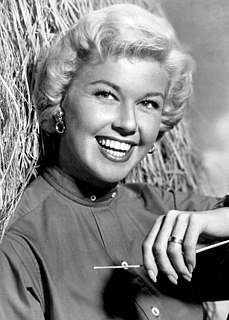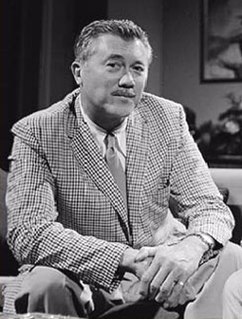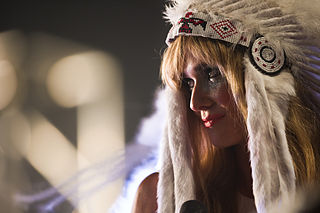A Quote by Doris Day
in the press, my sex life was something else again. I was Lady Bountiful of the Sheets. Some of the best fiction of the Sixties was written about my amorous adventures with an assortment of lovers who could have only been chosen by a berserk random sampler.
Related Quotes
It had also been my belief since I started writing fiction that science fiction is never really about the future. When science fiction is old, you can only read it as being pretty much about the moment in which it was written. But it seemed to me that the toolkit that science fiction had given me when I started working had become the toolkit of a kind of literary naturalism that could be applied to an inherently incredible present.
There have been only two taboos in the world: sex and death. It is very strange why sex and death have been the two taboos not to be talked about, to be avoided. They are deeply connected. Sex represents life because all life arises out of sex, and death represents the end. And both have been taboo - don't talk about sex and don't talk about death.
If you read the biographies of people who have written good books, you often see the point where they suddenly come into themselves, and those weeks in the spring of 1997 were when I came into myself as a writer. They feel like some of the best weeks of writing I’ll ever have. The discovery that I could write better about something as trivial as an ordinary family dinner than I could about the exploding prison population of the United States, and the corporatization of American life, and all the other things I’d been trying to do, was a real revelation.
The act of choosing what to place in your piece when you're a historian or a non-fiction writer already renders it into fiction for someone else. In some ways fiction comes a lot closer to reality. When you start talking about something as brutal as slavery and life in the American West, it's really important to take a non- judgmental stance. We romanticize a great deal about life in the American West, but I thank God I wasn't living during that time. No matter what color you were, it was rough, crude, tough living.
Going from memoir to fiction was fantastic. I had been afraid to move away from memoir; I'd written some novel drafts, but they weren't well received by my agent at the time, and it had been drilled into me that "memoir outsells fiction two to one" (not sure if that's true anymore, or if it ever was), so I felt like the only smart thing to do, professionally, was to keep mining my life for painful moments to recapitulate.
I do think that science fiction ideas are best expressed through visual media like film and TV. Realist literature depicts things that we have seen in life, but science fiction is different: what it depicts exists only in the author's imagination. When it comes to science fiction, the written word is inadequate.
I know that some of the folks in the press are uptight about this [moving the press corps out of the West Wing ], and I understand. What we're - the only thing that's been discussed is whether or not the initial press conferences are going to be in that small press - and for the people listening to this that don't know this, that the press room that people see on TV is very, very tiny. Forty-nine people fit in that press room.
Sex is hard to write about because you lose the universal and succumb to the particular. We all have our different favorites. Good sex is impossible to write about. Lawrence and Updike have given it their all, and the result is still uneasy and unsure. It may be that good sex is something fiction just can't do - like dreams. Most of the sex in my novels is absolutely disastrous. Sex can be funny, but not very sexy.
To put it in gentleman's terms if you've been out for a night and you're looking for a young lady and you pull one, some weeks they're good looking and some weeks they're not the best. Our performance today would have been not the best looking bird but at least we got her in the taxi. She may not have been the best looking lady we ended up taking home but it was still very pleasant and very nice, so thanks very much and let's have coffee.
Much blood has also been spilled on the carpet in attempts to distinguish between science fiction and fantasy. I have suggested an operational definition: science fiction is something that COULD happen - but usually you wouldn't want it to. Fantasy is something that COULDN'T happen - though often you only wish that it could.
In almost every musical ever written, there's a place that's usually about the third song of the evening - sometimes it's the second, sometimes it's the fourth, but it's quite early - and the leading lady usually sits down on something; sometimes it's a tree stump in Brigadoon, sometimes it's under the pillars of Covent Garden in My Fair Lady, or it's a trash can in Little Shop of Horrors... but the leading lady sits down on something and sings about what she wants in life. And the audience falls in love with her and then roots for her to get it for the rest of the night.




































